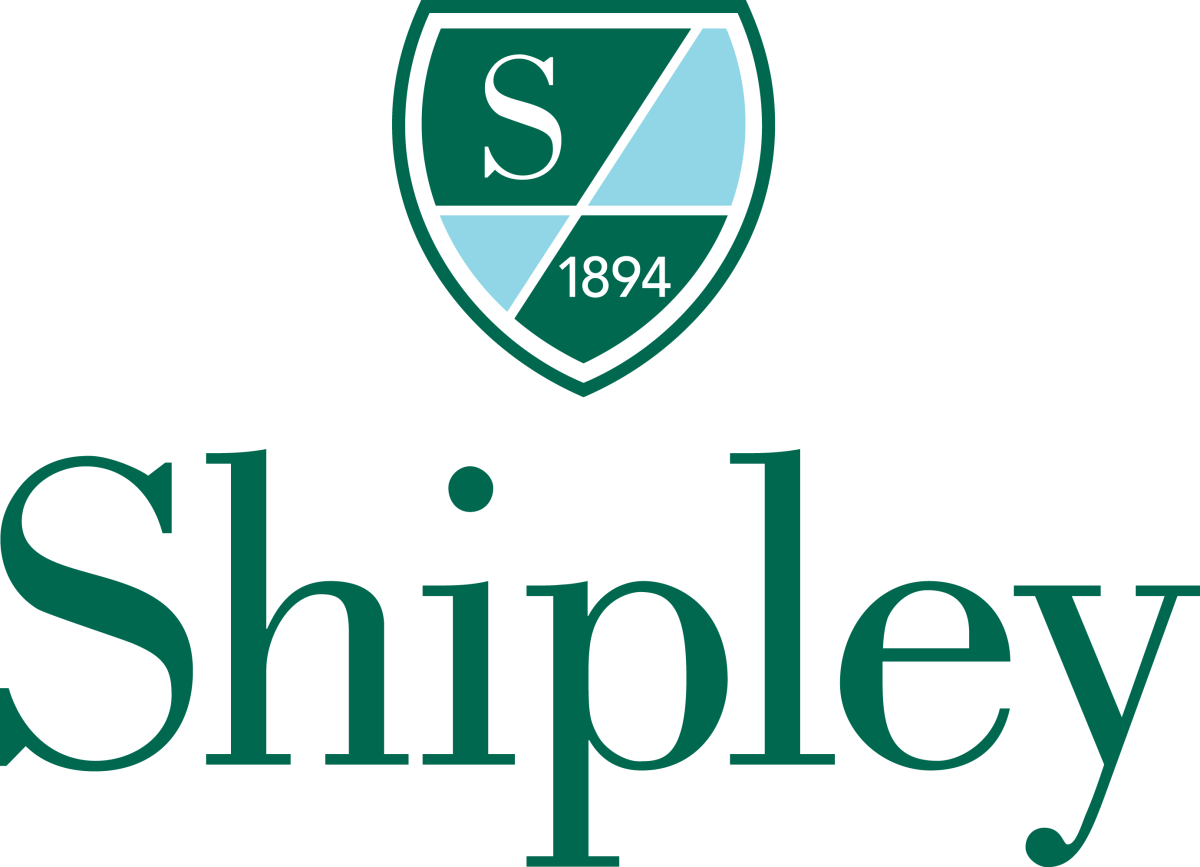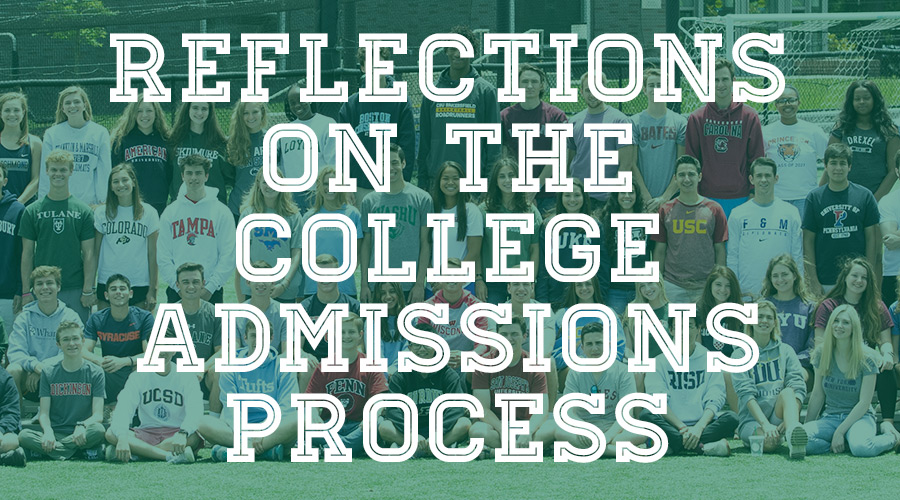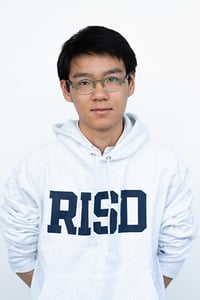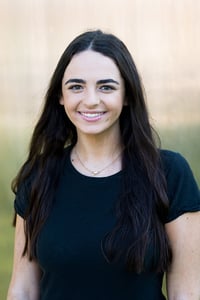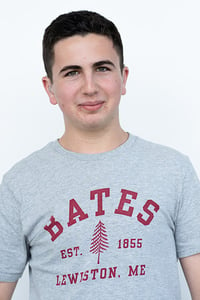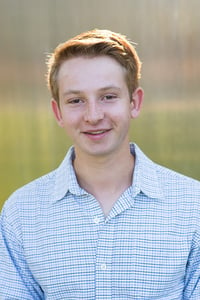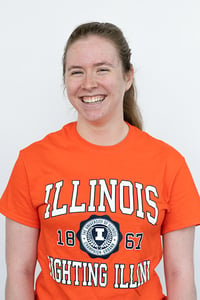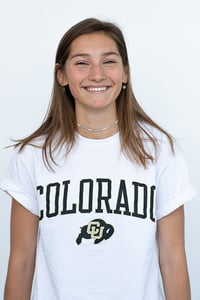Shipley’s college counseling program is as much about self-discovery as it is about choosing a college. Though it may feel daunting at times, the college process is an opportunity for students to explore their interests, strengths, and goals while building skills for doing research and making wise decisions about the future. At Shipley, the process can yield unexpected lessons and results. We asked six members of Shipley’s Class of 2019 to reflect on their college counseling experience and share what they learned.
Like so much of what we do at Shipley, our college counseling program is focused on the individual. The two-year program brings together assignments, activities, and resources that can lead to a productive search with satisfying—and sometimes surprising—results. Having three full-time college counselors allows us to focus on helping to choose a college that's the right fit for each individual. The self is at the heart of Shipley’s student-centered college counseling process, which is the culmination of our Pre-K through twelfth grade Social, Emotional, and Ethical Development (SEED) program. Our graduates report that the college process enhanced their self-reliance, confidence, and executive functioning skills—in addition to landing them in the right college. Learn more about our College Counseling process.
The following content in this blog post was originally published in May 2019 by the Beacon, Shipley’s student newspaper.
Our Panel:
|
Eason Bai |
Jessie Barroway |
Max Devon |
|
Ethan Kline |
Stef Morrison |
Kate Scutt |
What were you looking for in a school? Did your priorities shift throughout the process?
Max Devon: Initially, I was very unsure about what I wanted in a school. I originally thought that I wanted to go to a large school in an urban setting, so a lot of my initial prospects were schools along those lines (Georgetown, GW, NYU, etc.). However, as I visited those schools and reflected, I came to the realization that I would thrive in the polar opposite of that setting: a small, liberal arts college. (Bates College )
Kate Scutt: I was looking for a school that just “felt right.” I started my process very narrow-mindedly, solely looking at small, liberal arts schools. It wasn’t until I opened my search when I started to find the schools that felt like home. (University of Colorado Boulder)
Jessie Barroway: I was looking for a big school with great academics but also a lot of school spirit. I definitely wanted to have a football team to cheer for and to be close to a city. (UCLA)
Stef Morrison: I always really wanted a big school with a great engineering program and lots of school spirit, especially at sports games. During the process, I realized that I preferred certain regions over others and that I really wanted a college where I could have fun and be happy, but also get an outstanding degree. (The University of Illinois Urbana-Champaign)
Ethan Kline: I was looking for a liberal arts school with engineering and school spirit, as well. At the beginning of the process, I was more focused on the geographical location, but that became less important. (Lafayette College)
Eason Bai: Freedom to think, to express, to do, and to be. This has been my priority and will always be my priority. (Rhode Island School of Design)
How would you describe your college process? How did you arrive at your final decision?
Eason Bai: Full of turns and detours. I started my college process thinking that I would enjoy my time in a career related to art—perhaps art history or museum management. However, as the college process is, in fact, a process to understand yourself and the schools, I realized that I have wanted to be an artist all along. So I went with it.
Stef Morrison: For me, the process was fairly straightforward. I went through the list of the best colleges for aerospace engineering and narrowed it down based on location and general atmosphere. Illinois ended up being the best fit for me because of its great aerospace department, strong support for women in engineering, and a club ice hockey team so that I could continue playing.
Max Devon: I would describe my college process as fairly typical—a lot of frustration, confusion, and ultimately, relief. I took my SAT’s relatively early on, which I would recommend, as it allowed me to focus on more important things than standardized tests. After visiting several schools in New England over Columbus Day weekend, I narrowed down all my choices to my top two schools: Bowdoin and Bates, both small liberal arts colleges in Maine. Although I was deferred by Bowdoin ED1, I applied to my other favorite school, Bates, ED2 and was luckily accepted.
Kate Scutt: My college process was very long and unpredictable. It started when I was in 10th grade looking for D3 schools where I could play lacrosse, and it ended with medium-big universities and colleges. There were many twists and turns along the way that led me to my final decision. One of the main things that I had to do was to keep a totally open mind. In the beginning of my process, I would have never even considered CU Boulder, but now I am so happy and content with the decision I made.
Jessie Barroway: My college process was very unpredictable. I arrived at my final decision because I thought I would get into a certain school that did not accept me, and I did not think I could get into UCLA, where I am honored and proud to say that I got in. When I went out for admitted students day, I knew it is where I belong.
Ethan Kline: The process was daunting at first because there are so many options. After visiting a lot of different schools it was easier to judge each school. I arrived at my final decision through some process of elimination (a.k.a. rejection) but also through accepted student visiting day, when I got to meet potential classmates and walk around campus.
How did Shipley teachers, college counselors, and other members of the community help you throughout the process?
Stef Morrison: The college counselors really helped push me to look at colleges that I may not have considered, as well as helped me find my voice when writing essays. I was so grateful that I could have every essay and every application that I sent proofread to make sure it was perfect. My teachers were all so invested in both the process as well as the outcome, and I really appreciated the support that I was given.
Max Devon: My college counselor, Mrs. Couture, did a great job leading me through the process. I didn’t know much about the college admissions process, and Bates wasn’t even on my radar when I walked into my first meeting two years ago. Mrs. Couture taught me about all these schools I’d never heard of, and helped me figure out the type of college where I’d want to spend the next four years. She also helped me deal with the College Board in figuring out which SAT Subject Test to take and sending scores to schools.
Jessie Barroway: My college counselor Ms. Couture and the whole college counseling office was a major help in my process. I would not have been able to do this without them and I am so thankful for all of their help. My teachers also helped me simply by giving me confidence in myself as a student.
Kate Scutt: The Shipley college counselors helped me tremendously throughout the process. My counselor helped me come up with schools and helped me find solutions when I felt completely lost. If it was not for the counselors, I would have been extremely more lost throughout the process and I would not have been able to find clarity during the hardest parts.
Ethan Kline: College counseling was helpful in giving me a list of schools that I might have been interested in and saying “do some research and narrow this down.” It also helped to have connections to Lafayette through my peers (parents who went to the school, etc.).
Eason Bai: The Shipley community, counselors, my advisor, and especially my art teachers, gave me the confidence and determination to pursue my long-ignored calling.
What was the hardest part of the process for you and why?
Jessie Barroway: The hardest part of this process was understanding that I will end up where I am meant to be. I truly believe that everything in this process happened for a reason and that I ended up exactly where I belong, even though it was not my initial idea of where I would be.
Stef Morrison: The hardest part for me was writing the essays, since I am not a very introspective person and find it hard to talk and write about myself. They got easier as I got more practice, but I really struggled on my first couple of drafts.
Ethan Kline: The hardest part of the process was waiting to be accepted into a school because I applied regular decision to almost all of my schools, and it felt like everyone else knew where they were going before I got in anywhere.
Eason Bai: The hardest part was to settle my mind on going to an art school. To be affirmed of my wish and devote my whole self to art in the next four years is just a decision that requires me to be both emotionally and rationally prepared.
Max Devon: The hardest part for me was probably the Common App essay. Writing about myself was pretty challenging and outside of my comfort zone. It took me a long time to finish my first draft, so I would recommend not procrastinating on the essay.
Kate Scutt: The hardest part of the process was the uncertainty and disappointment. Not getting into schools and not getting the financial support I needed are a big part of many people’s college stories, but when you are going through it yourself, you feel alone and incredibly saddened.
What do you wish you had known at the beginning of the process?
Max Devon: I wish I had better understood the miniscule role of standardized testing in college admissions. While the SAT/ACT make up a small part of your application, it pales in comparison to your essay, your transcript, and even your extracurriculars. Colleges just don’t care that much about how you did on a four-hour standardized test on a Saturday morning, so it is not worth stressing out that much about. In fact, more and more schools are becoming test optional in their admissions, which is great.
Jessie Barroway: I wish I knew that if I don’t get in somewhere, it really does not mean that I was not qualified enough or I am not good enough to be there. It really just meant that I was not what they were looking for in that moment.
Stef Morrison: I wish I had known how much work it would take from start to finish, but also that the payoff would really be worth it. I also wish I knew that it is fine to have one idea of a school before you visit but then completely change your mind. My top choice of school changed several times as I went through the process, which took me by surprise a little.
Ethan Kline: I wish I had known to be patient, and I wish I had a better sense of what I needed to prioritize when looking at a school.
Eason Bai: Who I am and what I really want.
Kate Scutt: I wish I had known that when the process gets most difficult is when you need to be the most positive and determined. I often got down and angered by myself and the process when things were not going my way, and I would shut down. If I had known that the time I wasted shutting down could have been used finding new schools and advocating for myself, I could have not felt so lost and discouraged. I also wish I had known that the process is different for everyone, but that is ok. Some of my best friends found out where they were going in November, while others, like myself, did not know until May. This can be really hard especially when it seems like everyone around you had it so easy, but in reality, the majority of the kids around you are just as confused as you are. I wish I had known that it is OK to not know until May, and although it seems like the kids that get in in November are smarter or more organized or better, it really just means that that is how their process worked out.
What advice would you give to underclassmen?
Max Devon: If you are not a junior, you should not be focusing at all on the college process. It is a waste of time and will damage you psychologically if you spend all four years worrying about where you’ll go after Shipley. Just do your best in the classes you take and involve yourself in all that high school has to offer, and the college process will arrive naturally come junior year.
Kate Scutt: I would say that it is not about getting into the number one school, the school that has the best reputation, or is the hardest school in the nation to get into. The process is so individualized and when you start caring more about what others will think of you, that is when the process gets 10X harder and 10X more stressful that it is intended to be. This process is about finding where YOU belong, not where society says you should belong, not where your parents say you should belong, etc. Keeping an open mind and all of your options open will ensure that you will have a successful outcome
Jessie Barroway: I would tell underclassmen to keep an open mind throughout the process. My freshmen year I had my heart set on one school and I did a summer program there and ended up hating it. I had not really considered UCLA because of how competitive the admissions process is, as it is the most applied to university in the country. It is crazy to me how I was thinking about college since freshmen year and ended up at the one school where I applied without taking an official tour. This process is incredibly unpredictable, so do not get obsessed with one single school because your options may end up surprising you.
Stef Morrison: Finish as much as you can (essays, visits, testing, etc.) before senior year if possible. For me, it made everything much less stressful because all I really had to do was write school-specific essays and make sure that all of my applications were correct.
Ethan Kline: Visiting a college gives you a much better feel for the place than reading about it or researching it online.
Eason Bai: Find yourself first to find your school.
